Cats tend to be less susceptible to poisoning than dogs: they tend to be fastidious eaters, avoiding anything that they are not sure about, whereas dogs are more likely to wolf down anything in front of them. Nonetheless, cats do sometimes eat toxic substances, and they can be exposed to poisons in other ways. too.
Keep reading to learn the signs of poisoning in cats and what you can do to help.
What Are Poisons?
A poison is defined as a substance that is capable of causing the illness or death of a living organism when introduced or absorbed. People tend to think of poisons being substances that are eaten, but they can also be absorbed through the skin, inhaled, or injected.
How Can Cats Be Poisoned?
Cats can be poisoned in a wide variety of ways, with the ingestion of household chemicals among the most common causes.
- Malicious poisoning, due to the deliberate placing of poison bait to harm cats. This only happens rarely. The poison may be placed in a formulation that is palatable to cats, in a place where they are likely to encounter it.
- Accidental ingestion is far more common: e.g. a cat may find a poison that has been left out to control rodents.
- Cats are prone to poisoning by grooming themselves following contamination of their fur by a poison e.g. if a cat has certain types of chemical or oil spilled onto their coat, they will clean themselves by licking it off, leading to poisoning.
- Inhalation of toxic fumes e.g. carbon monoxide can cause poisoning.
- Poisons can be injected e.g. the humane euthanasia of a cat by a veterinarian is technically a form of poisoning.
Causes of Poisoning in Cats
Causes of poisoning in cats are wide-ranging, including the ingestion of human medications. Avoid giving your cat human medications as an alternative to veterinary drugs.
The broad groups of possible poisons for cats include the following:
- Household products including anti-freeze (ethylene glycol), paints, household cleaners including bleach, oils, solvents, cleaning products, wood preservatives, and disinfectants. Some of these household items may be ingested by cats (e.g. antifreeze poisoning is common after anti-freeze is spilled on the garage floor, and a cat licks it), but in most cases, it’s more likely that the cat’s coat will be contaminated by spilled product, and the cat will ingest the poison while self-grooming.
- Garden products like slug bait, weedkillers, and other pest control products. Slug bait pellets are one of the most common poisons, as they are palatable to cats, and they are often left in open areas like vegetable gardens: even a brief nibble of such products can be fatal.
- Rodent control poisons, also known as rodenticides, are often palatable to cats.
- Human foods that cat carers may not expect to cause problems but which in fact may be highly toxic to cats e.g xylitol, alcohol, onion, and garlic.
- Poisonous plants that are highly toxic to cats include common houseplants like Easter Lilies, Azaleas, and tulips.
- Human medical drugs are sometimes given to cats by cat carers, and sadly these are a common cause of serious illness and death in cats. Examples include anti-inflammatory medication such as paracetamol (acetaminophen), aspirin and other over the counter products,
- Veterinary drugs including products like dog flea treatments (including permethrin) and other over-the-counter parasite control products from pet shops and supermarkets.
- Recreational drugs including marijuana and cocaine.
What Are the Signs of Poisoning in Cats?
The specific effects of one poison can be very different from another, from kidney failure to seizures to unconsciousness to gastroenteritis. The list of possible signs of poisoning in cats is very long, depending on the mode of action of the poison.
In general, there are two occasions when cat carers should suspect poisoning.
- First, when a cat has had known contact with a specific poison of some kind.
- Second, when a cat develops sudden onset signs of illness, with no obvious cause.
In both instances, the assistance of a veterinarian should be sought without delay.
General Symptoms of Poisoning in Cats
Signs of poisoning may include collapse, seizures, dullness, inappetence, increased excessive thirst, drooling, vomiting, diarrhea, difficulty breathing, muscle tremors, altered behavior, as well as other more subtle signs such as reduced urination, low blood pressure, slow or rapid heart rate.
Common symptoms relate to the specific damage caused by the poison e.g. liver failure, kidney disease, or gastrointestinal irritation.
What Effects Do Poisons Have on Cats?
The general principle is that a poison damages part of the body. Each different type of poison has a different consequence, depending on which part of the body it affects.
What To Do if Your Cat Is Poisoned
Some foods, like chocolate, are truly poisonous to cats.
If you know for sure that your cat has just been exposed to a poison of any kind, you must contact your veterinarian immediately.
Prompt removal of the poison before it affects the cat is the best approach. This can mean washing the cat using a special technique (if the poison is on the coat) or inducing vomiting (if the cat has eaten some types of poison) or decontaminating the digestive tract in other ways, for other poisons.
If you only discover that your cat has been poisoned when they show signs of poisoning, you also need to take them to your vet as soon as possible: prompt treatment can be life-saving.
Treatment of Poisoning in Cats
Veterinarians often work with poison control centers, using a pet poison helpline, to obtain specific detailed advice for the treatment of individual poisons.
- Antidotes. Only a few poisons have specific antidotes: examples include some types of rat poison. Your vet will guide you as to when this is appropriate.
- Emetics. If the poison has recently been eaten, the induction of vomiting by an emetic given by your vet is an effective way of emptying the stomach and removing the poison. This has to be done within two hours of the poison being eaten, which is why it is so important to rush your poisoned cat to the vet.
- Gastric lavage. In some cases, gastric lavage (“pumping the stomach out” under anesthesia) may be suggested by your veterinarian.
- Gastrointestinal adsorbents such as activated charcoal are sometimes used to reduce the absorption of certain poisons from the digestive tract/
- Colonic lavage may be used to flush poisons out of the lower part of the digestive tract in some cases.
Cat Poisoning Prevention Tips
The best way to prevent poisoning in cats is to ensure that all possible toxins are kept out of cats’ reach. This involves careful storage of all poisonous products, the exclusion of toxic plants from homes, and keeping cats away from areas (such as gardens, garages or backyards) that may have poisons in use.
Websites like the ASPCA include lengthy listings of many possible poisons. Safe cat care includes being cautious to ensure that cats are never exposed to items that can cause poisoning.
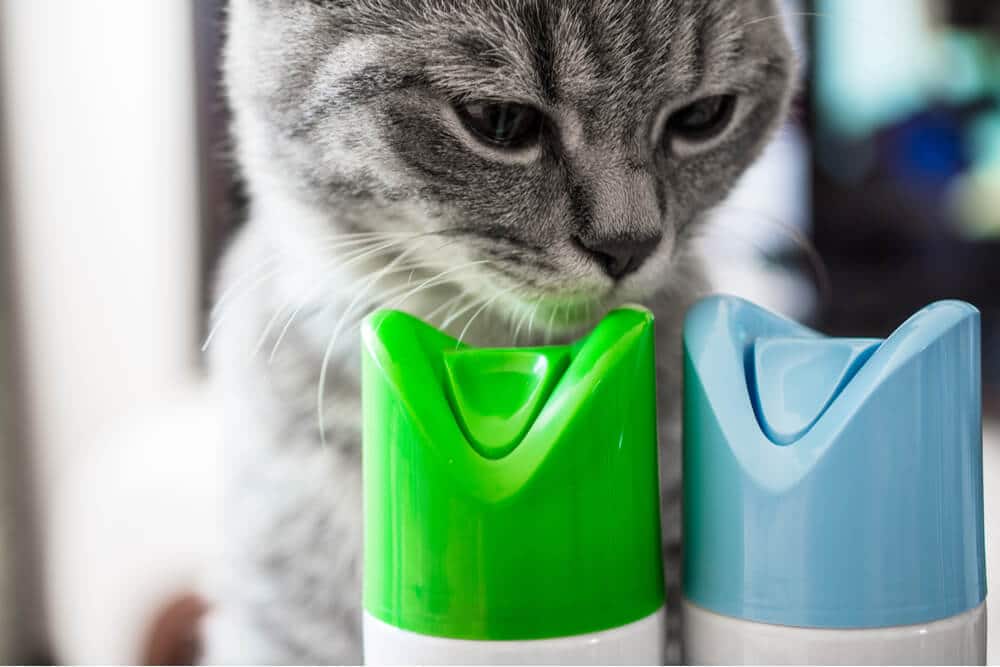
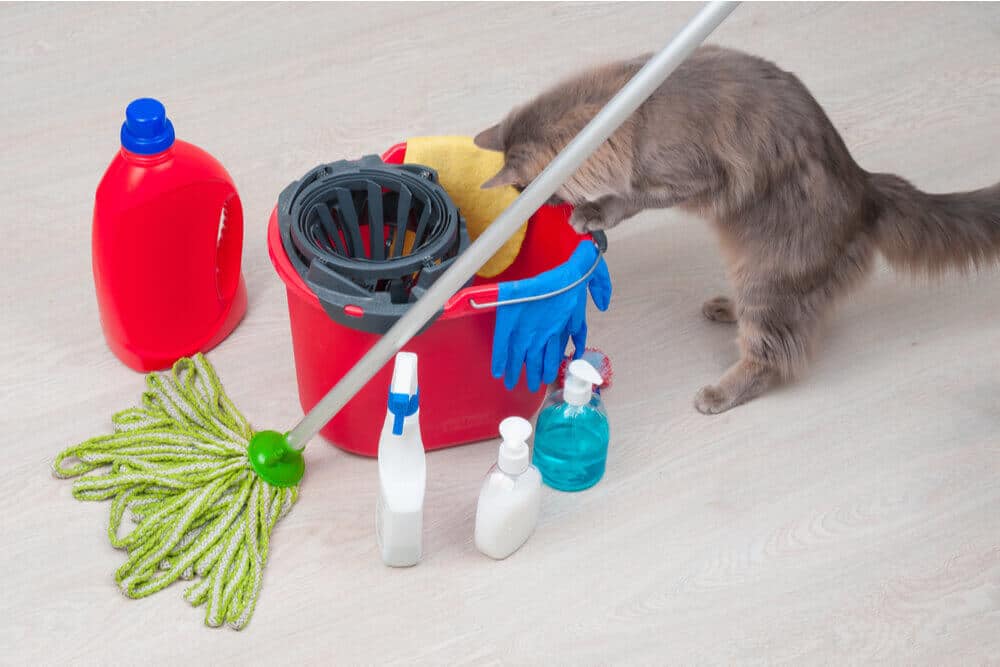
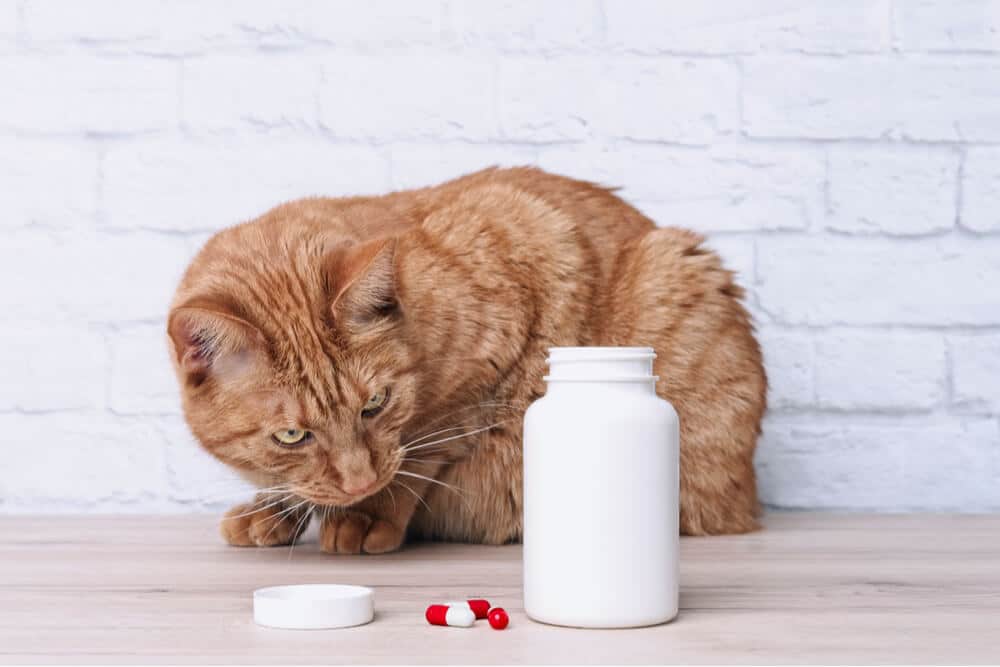
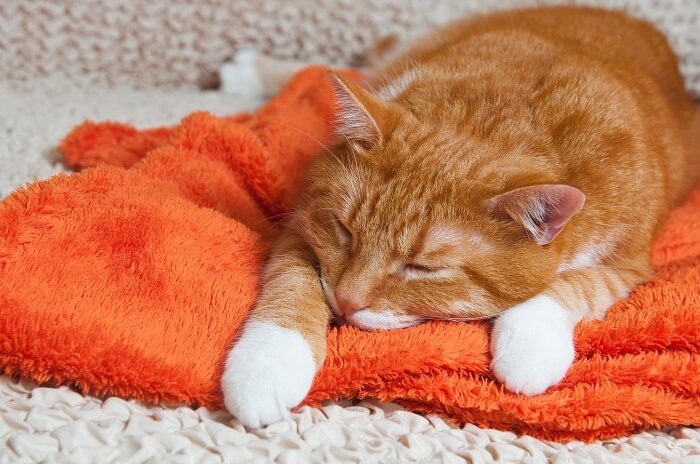
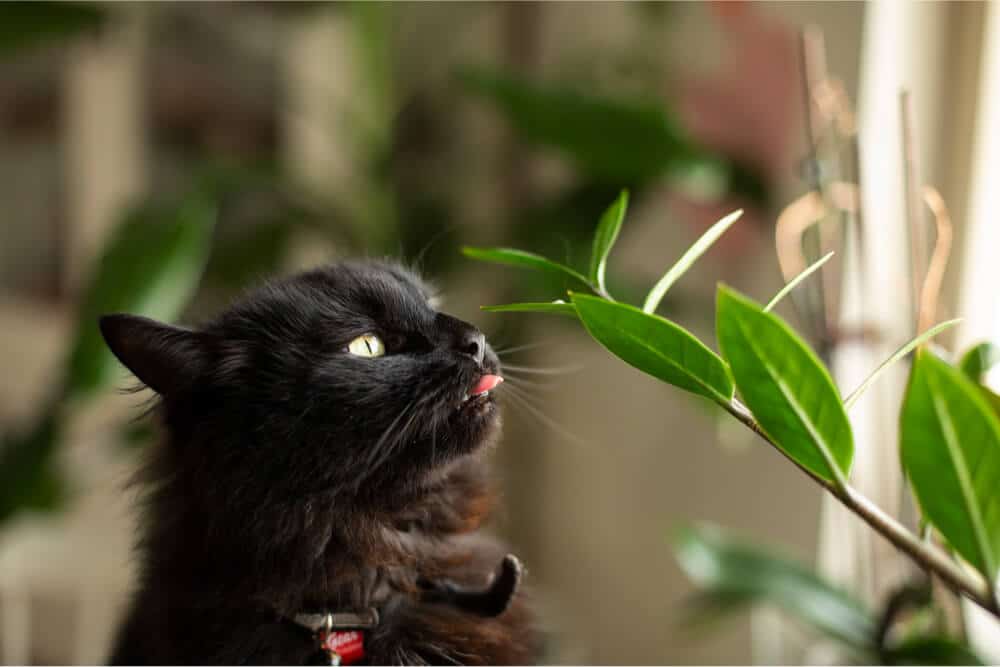


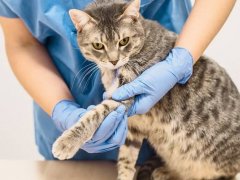

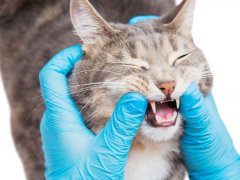
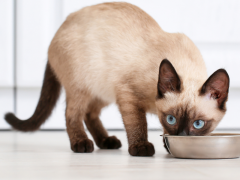



My granddaughter let my cat drink water from a cap that was on spray paint so fay she ls ok lt looks like lt never was used. Should l be concerned
Your cat is probably fine, but I would keep an eye on her in case any symptoms show up. Wishing you and your cat all the best. Should be a good learning experience for your granddaughter, too. 🙂
my outdoor cat died last night , would not eat , loss of balance, heavy breathing, eyes twiching , pain, she died about 1 hour after i found her . how can i tell the cause of death, i did save some fecal matter. i am very hurt my this she was about one year old feral and i had her spayed by Tara little by little she was trusting me and coming closer to me and eventually i was going to bring her inside…….
I’m really sorry to hear this. There is a long long list of possible causes of death and feces is very unlikely to hold the answer. The only way works be to get a full autopsy carried out and even then sometimes it can be difficult to fully w work out what happened. My sympathy. It’s very upsetting. Pete
I just found my cat, she is weak and a bit confused it seems, she is not vomiting or having any type of diarrhea, her breathing is a bit fast, her pupils look a bit dilated, and all she wants to do is lay there and sleep. she is refusing water and food
Hi Lissa – any cat like this should be taken to the vet for a thorough checkover as there are many possible causes as well as perhaps poisoning. Urgent treatment could be life saving, so I would not delay. Thanks. Pete